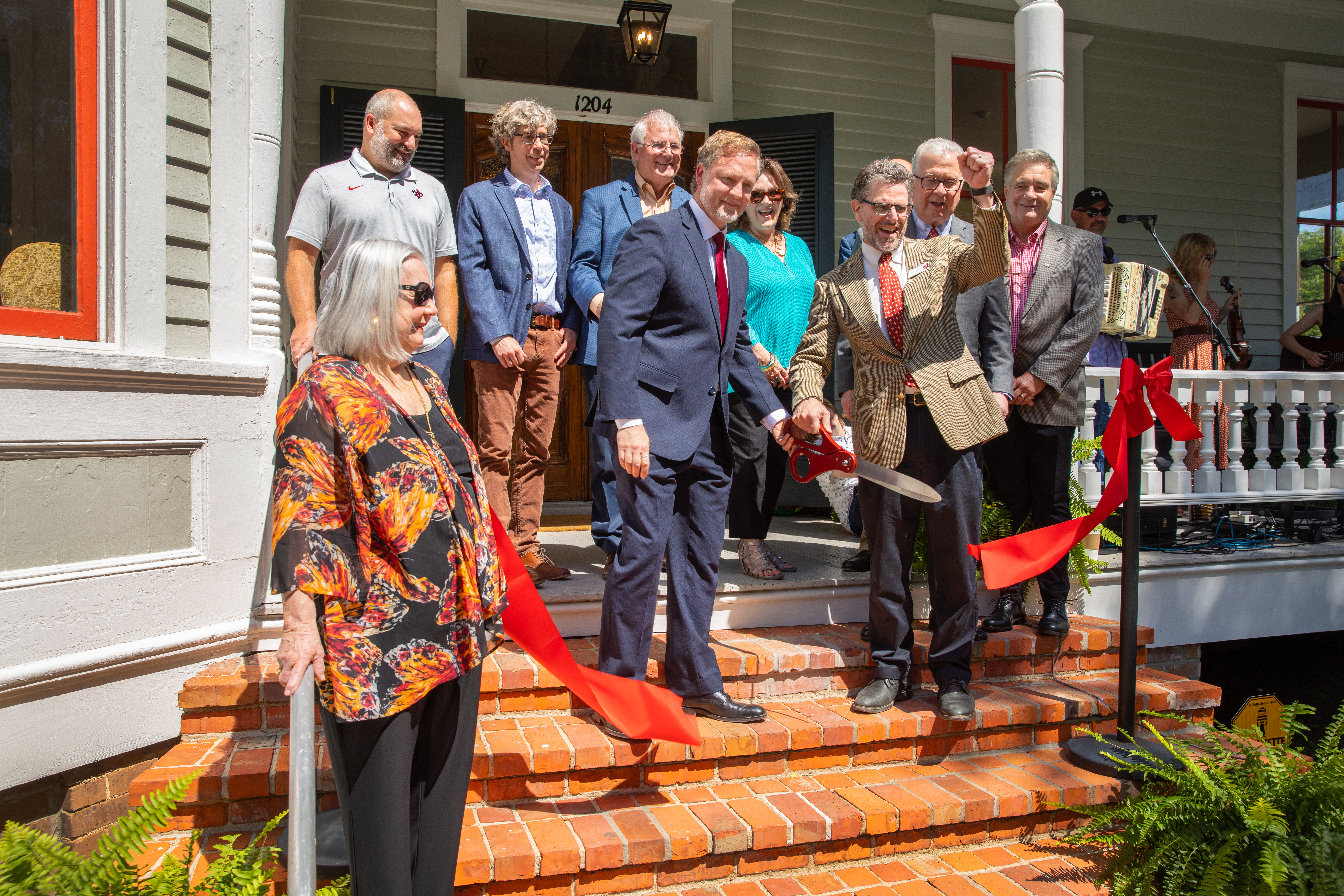The University of Louisiana at Lafayette’s Center for Louisiana Studies flung open the doors to its new home – the J. Arthur Roy House – during a ribbon-cutting ceremony on Thursday.
The recently renovated Roy House is the only campus building listed on the National Register of Historic Places; it’s now a hub for scholarly investigation of Louisiana’s people and history. The Center for Louisiana Studies attracts academics and scholars from across the world.
The College of Liberal Arts center, established in 1973, is UL Lafayette’s oldest research center. Its research division houses the Archive of Cajun and Creole Folklore, the largest collection of audiovisual materials related to the traditional cultures of southwestern Louisiana. The center also oversees the University of Louisiana at Lafayette Press.
The two-story, 5,000-square-foot Roy House was built by businessman J. Arthur Roy. The Queen Anne-style structure was completed in 1901, the year that the University – then known as the Southwestern Louisiana Industrial Institute – enrolled its first students. The Roy House stands at the corner of Johnston Street and University Avenue.
An extensive overhaul of the 122-year-old structure makes it a fitting and accessible location for the Center for Louisiana Studies, “its front door,” explained Dr. Joshua Caffery, the center’s director. Portions of its materials will remain in Edith Garland Dupré Library, including its inventory of thousands of UL Press books and primary archival documents.
As part of the restoration, the Roy House holds a reading and listening room where scholars and patrons can access the center’s audiovisual archives, and a bookstore where UL Press and other Louisiana-focused titles will be sold. The house also will contain a collection of rare maps.
Caffery expects the Roy House to entice visitors who simply want to view its grandeur. Beyond utilitarian upgrades to plumbing, wiring, heating and cooling, the renovation was carried out with an eye on maintaining as much of the house’s original aesthetics and architecture as possible.
“The center is already a renowned destination for research and creative projects and, since Louisiana culture fascinates all sorts of people, I expect that having the center based in the Roy House will draw more scholarly interest as well as general interest,” Caffery said.
The exterior of the Roy House features a two-story front gallery, three-sided bay windows and gables. Interior amenities include an intricate staircase, several elaborate mantels, wood floors, and restored light fixtures and repaired original stained glass.
“It’s not going to be a museum, but the entire house is a historical artifact. It’s one of the most beautiful houses in the region and a landmark people want to see,” Caffery explained.
Photo caption: Representatives of UL Lafayette, its Center for Louisiana Studies and contributors to the recent renovation of the Roy House attended a Thursday ribbon cutting ceremony. Shown, left, are: Dr. Vaughan Baker, former department head; Scott Hebert, director of Facility Management; Scott Chappuis, Architects Beazley Moliere; Robert "Popie" Billeaud, J.B. Mouton Builders; Dr. Joshua Caffery, center director; Rita Durio, Rita Durio and Associates; Dr. Jordan Kellman, College of Liberal Arts dean; Dr. Joseph Savoie, University president; and John Blohm, vice president for Advancement and chief operating officer of the UL Lafayette Foundation. Photo credit: Doug Dugas / University of Louisiana at Lafayette
